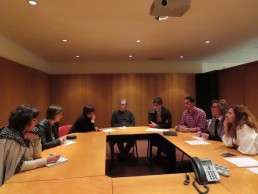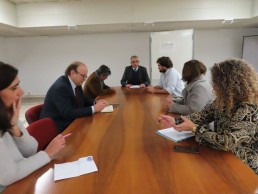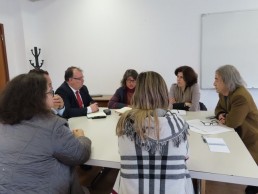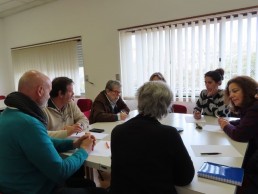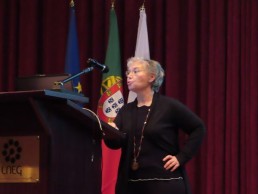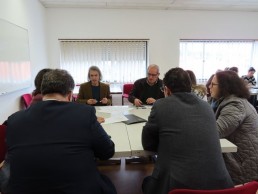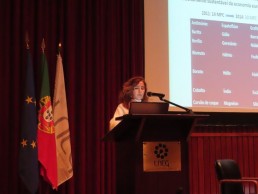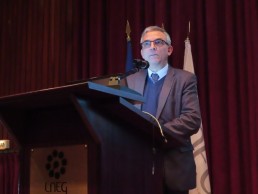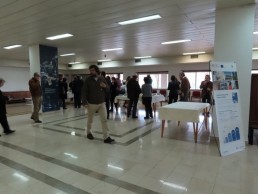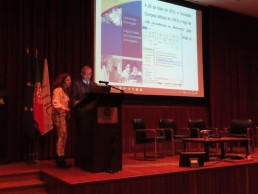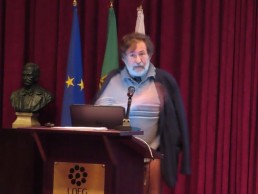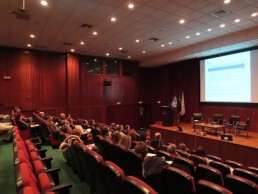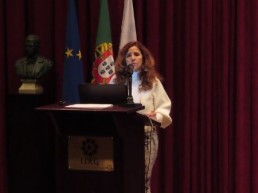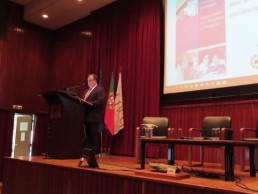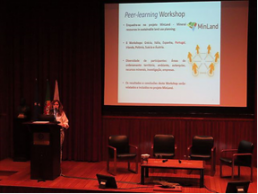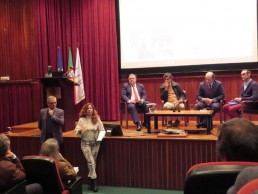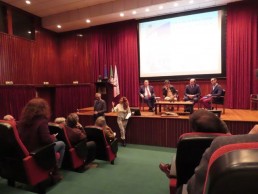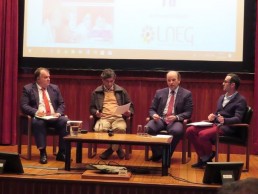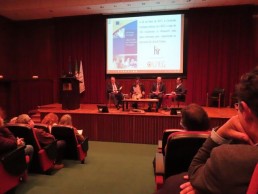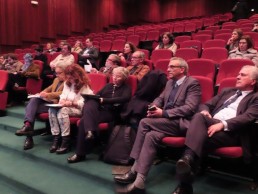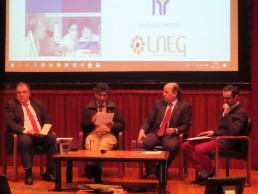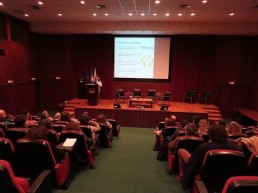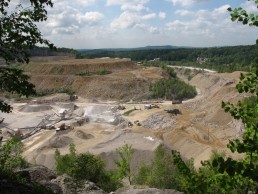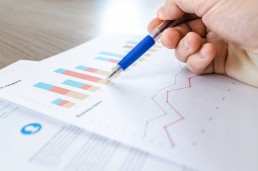MinLand Network Workshop, Brussels September 17, 2019 – Interested?
MinLand Project
It is our great honour and pleasure to invite you to participate and contribute with your expertise to the MinLand Network.
In Europe the need for raw materials by far surpass the production. In order to meet need of needs of raw materials within the EU has e.g., through the H2020 umbrella launched a number of actions directed at improving conditions for the extractive industry. In this context it was recognised that one of the large challenges in extractive minerals industry is access to land and its use. Therefore, the H2020 MinLand project aims at investigating good practice in land-use planning policies, practices and linking to mineral prospecting and extraction. Specific land-use challenges might arise from/at e.g.,
• highly densely populated areas
• nature conservation and protected areas
• other industrial and other activities- tourism, agriculture, cultural heritage
• infrastructure
• affected parties
MinLand project aspires to assist and effect the land use process so that mining projects will be evaluated on par with other potential land uses. MinLand will also attempt to provide examples of Good Practice that can assist to improve the authorization and permitting procedures.
One of the actions that can assist promoting and achieving this goal, is the creation and active involvement of a network of experts and stakeholders, associated with land use planning and/or affiliated with mineral planning or industry. Therefore, MinLand will create a “Network of Experts”. We are inviting you to be a part of this Network by sharing with MinLand your views about certain aspects related to land-use planning. Furthermore, as a member of the Network, we will invite you to participate in expertise exchange events together with other specialists as you, that we will organise. The Network of Experts will also be used for consultations of the MinLand network regarding good practice and challenges in mineral prospecting and extraction in Europe.
It must be highlighted that being a member of the Network it is not obligatory to physically participate in the organised events. You can assist us with your expert opinion using other means of communication.
Register by email to:
Ronald Arvidsson, Project Coordinator, SGU – ronald.arvidsson@sgu.se
Chrysa Panagiotopoulou, NTUA - chrysapanag@metal.ntua.gr
Click here to download the invitation letter.
Click here to download the workshop programme.
MinLand Brochure #2
The MinLand project was created from the common need to secure raw materials supply within Europe, including the increasing demand for metallic and industrial minerals, meeting the need of strategic value chains.
This ultimate objective can be achieved by implementing sustainable land-use planning addressing minerals development and responsible mining activities.
The main results and other interesting insights about the project are showcased in the brochure.
Click here to view the MinLand Project brochure.
MinLand consortium meeting
The MinLand consortium meeting was held on the 9th and 10th of May 2019 in Vienna, Austria. The meeting was hosted at the campus Vienna University of Economics and Business who is also a partner of the MinLand Project.
On 09th of May 2019, the meeting started with a formal introduction by the partners. The results from the review meeting were deliberated by the project coordinator. The partners presented their work and discussed related actions and steps for the development of the project. In the afternoon, a workshop on good practice elements in land-use planning was held, the partners were divided into 4 groups with the aim to share the key focus themes and to intricate on the best practices from the EU countries.
On the 10th May of 2019, the remaining partners presented their activities and results.
The core of MinLand consortium builds upon the participation of European geological surveys represented by partners and third parties under the umbrella organization EuroGeoSurveys. The MinLand project has been designed to meet challenges concerning competing land-use planning related to different land-use interests. MinLand offers an answer to these challenges and is therefore rewarded with an EU Horizon2020 research and innovation programme under Grant Agreement No 776679. Moreover, the project will close at the end of 2019.
MinLand at UNECE Expert Group on Resource Management in Geneva
EuroGeoSurveys as the organization that produce geological data that is the base for future mineral land use and associated extraction of minerals lines up on what was underlined on this global event - Proper data-sets on minerals and other earth resources to support mineral land use planning and extraction.
More than 350 persons from all continents and from all sectors (decision makers, geological surveys, companies, authorities, universities, NGO's, individual experts, etc.) were present and the number of participants was between 100-200 on every day. Materials are and will be available here: www.unece.org.
As a Bureau member of the UNECE EGRM, Dr. HORVÁTH Zoltán, Head of Department, Mining and Geological Survey of Hungary, thanks the team (Charlotte Griffiths, David MacDonald, Hari Tulsidas, others), for their cooperation and discussions on data harmonization by international standards (UNFC classification, CRIRSCO type reporting codes) and INSPIRE which was also on the table on EU-level.
UNECE EGRM is a global level network for sustainability from minerals and other earth resources (energy, non-energy, solid, fluid type, renewable's, groundwater, etc.) and access to minerals and mineral safeguarding issues can be elements of the logical UNFC system (e.g. existence or lack of permissions, social-environmental and economic considerations, SLO on the "E" and "F"-axis from the three axis; "E": economic social viability, "F": feasibility, "G": geological knowledge and potential).
Many Geological Surveys (EGS, BGR. LNEG, MBFSZ, SGU), other EU-projects (ORAMA, MINTELL4EU with other GeoERA programs) were represented there.
Click here to download the presentation.
MinLand Newsletter #2
The MinLand newsletter - Edition #2
The 2nd MinLand newsletter comprises of interviews with the main stakeholders of the MinLand workshop on sustainable land use and mineral resources management. Also explaining on how the MinLand project could help it?
Click here to download the newsletter.
Video on daily use of mineral raw materials in everyday life - MIRO Medien
In an entertaining way, the film informs about the daily use of mineral raw materials in everyday life and in the economy. From asphalt to toothpaste, we use a large number of products daily, which are mined, promoted and then further processed in quarries, dredged lakes and gravel pits.
Click the link to watch the film: www.youtube.com/watch?v=HMf3XBuR5mY
Video courtesy: MIRO Medien
MinLand Workshop: The opportunity to integrate mineral Resources in Land-Use Planning in Portugal
MinLand Portuguese Workshop is done: the opportunity to integrate mineral Resources in Land-Use Planning
February 4, 2019
The MinLand workshop, organised by LNEG and DGEG, was held on January 23, 2019 in the Auditorium Carlos Ribeiro, at the LNEG Campus in Alfragide.
The event was attended by 47 representatives of 10 regional and national entities involved in the Land-Use Planning, Mineral Resources and Environment decision-making process.Representatives of private companies also attended the workshop.
The workshop started with presentations related to the integration of mineral resources in land-use planning. These were followed by a discussion at four roundtables on the following issues:
- How to consider the concepts of “Potential Area” and “Complementary Exploitation Area” in the municipal land use plans?
- What is the public perception of the importance of mineral resources?
- It is easy to get new mining permits in areas that are not designated in land use planning for the exploitation of mineral resources?
The discussion was fruitful allowing reaching some conclusions:
The difficulties in safeguarding mineral resources through land use planning are fundamentally related to the lack of a national sectoral plan for mineral resources and the low flexibility of other sectoral plans in their relationship with minerals. In addition, these difficulties are directly related to a decisive factor, which is the low public acceptance for mining as a result of misinformation.
The proposed solutions involve the establishment of a sectoral plan for mineral resources, the creation of mechanisms to improve the flexibility of the municipal land use plans, raise awareness among the public on the need of mineral resources through education in schools, media, social networks, and a need of more transparency by mineral exploration companies. It was also unanimously proposed that a bigger percentage of royalties should be allocated to social actions at the community where mining is carried out.
MinLand Workshop in Poland – Mining activity in complicated environmental and spatial conditions (on the example of Czatkowice Limestone Mine)
The MinLand workshop, organised by MEERI PAS (Mineral and Energy Economy Research Institute Polish Academy of Science), was held on October 8, 2018 in Krzeszowice (Malopolska province) in the Czatkowice Limestone Mine.
Aim of Polish Local Workshop was discussion about possibility of mining activity in complicated environmental and spatial conditions (based on case study – Czatkowice Limestone Mine). The expansion of exploitation was related to the complicated local environmental conditions associated with occurrence of landscape park (the new part of deposit is located in park boundary), natural reserve, Natura 2000 area, Monastery Complex and drinking water intakes. Starting the mining activity required many activities related to abolition of extraction ban in landscape park, obtaining of environmental decision and changes of local spatial planning documents.
The meeting was attended by 27 experts from the following institutions: central authorities, regional government, local government, consulting companies, research institutions and industry.
The workshop was divided into three parts: presentations connected with MinLand project, detailed characteristic of Czatkowice Limestone Mine and technical visit at the Czatkowice mine.
The roundtable discussion was fruitful allowing reaching some conclusions:
- properly implemented spatial planning system on the local level (commune level in Poland) may decide on success - it takes into account the all environmental conditions of the development of a given commune, including the occurrence of the documented mineral deposits;
- it is necessary to ensure proper provisions in the documents regulating the functioning of various forms of nature conservation (e.g. landscape parks);
- the commune's experience suggests the need to update local planning documents even every 5 years (but they should take into account the perspective of at least 10 years);
- facilitation for mining entrepreneurs (shortening procedures) is the possibility of parallel work on amendment of local spatial planning documents (the Study of Conditions and Directions of Spatial Development of Commune and the Local Spatial Management Plan of Commune (in Polish hierarchy of spatial documents the Study.. is superior document in relation to Local Spatial...));
- it is necessary to improve (shorten) procedures related to environmental impact assessment and obtaining environmental decisions;
- properly conducted dialogue with the local community and local authorities may decide on success (CSR could be the key to success);
- it is much easier for mining entrepreneurs to operate in municipalities with a mining tradition (brownfield projects). The real challenge is to start a mining activity in "greenfield land".
Click here to download the report.
Open call for E-Delphi survey: Future stakeholder needs and interests in mineral safeguarding and land use
Dear Mining & Land Use Planning Expert
Competition between land uses in Europe is expected to remain strong in the coming decades and many European mineral deposits are at risk of not being adequately protected for future potential use. Technology is rapidly changing and demand for new materials is emerging. What will be the consequences for Europe? Will European mineral resources become more important
in the future? How can we ensure they remain protected?
We´re conveying an online DELPHI Survey between 29th October and 30th November 2018 to collect your vision on future stakeholder needs and interests associated with land use planning and mineral safeguarding in Europe. If you are interested and able to voluntarily
devote around 3 hours to the whole study in that period, please REGISTER HERE: bit.ly/2yJPbJQ and we will evaluate your profile with a chance to becoming part of our Panel of Experts. We look forward to receiving your application.
Deadline: 25 October 2018.
Warm regards from the MINLAND team!
Do not hesitate to contact us in the case of any questions on blazena.hamadova@minpol.com
Click here to download this file.
Check out the brochure of MINLAND Project
The MINLAND project has been designed to meet the challenges of competing land use from many different needs. Therefore, securing access to land for exploration and extraction of minerals, including critical raw materials in an integrated optimized process is of great importance.
Check out the brochure and learn more about the MINLAND Project.


